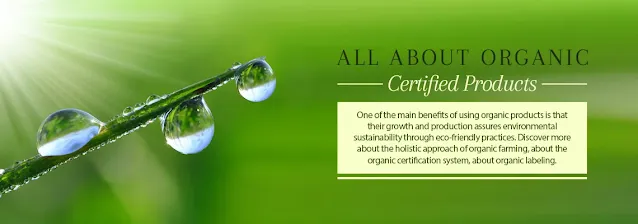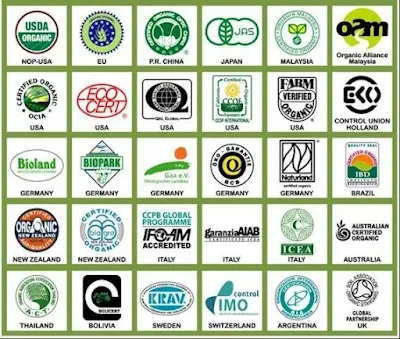Organic Certification in Nepal ocn
Organic certification is a process by which farmers, processors, and traders of organic products can prove that their products meet certain standards for organic production and processing.
The certification process is intended to ensure that organic products are grown and processed without the use of synthetic pesticides and fertilizers, genetically modified organisms (GMOs), and other prohibited substances.
Introduction to Organic Certification Nepal (OCN)
Organic certification Nepal (OCN) is a process that guarantees that organic products are produced and processed without the use of synthetic pesticides and fertilizers, GMOs, and other prohibited substances.
Organic Certification Nepal Pvt. Ltd. is internationally accredited certifying body that helps farmers, processors, and traders of organic products to prove that their products meet the standards for organic production and processing.
Organic Certification Nepal Pvt. Ltd. offers a range of certification services to its clients, including initial certification, annual inspections, and re-certification. The company's certification process is based on the internationally recognized principles and standards of organic agriculture, and is designed to ensure that organic products are of the highest quality.
Through its organic certification , Organic Certification Nepal Pvt. Ltd. helps farmers and processors to access new markets and customers, increase their income, and promote sustainable farming practices in Nepal. The company also helps consumers to make informed choices about organic food they buy, and to support the growth of organic sector in Nepal.
Organic Agriculture
Organic agriculture is a holistic production management system that aims to optimize the health and productivity of interdependent communities of soil life, plants, animals, and people.
It emphasizes the use of natural processes and methods, such as crop rotation, composting, and biological pest control, to produce food and other agricultural products.
Organic agriculture prohibits the use of synthetic fertilizers, pesticides, and genetically modified organisms (GMOs), and instead relies on natural methods to control pests and diseases.
It also promotes the use of sustainable practices, such as conservation of biodiversity, water and soil management, and the use of renewable resources.
Why Organic Certification is Important?
Organic certification is an important process that guarantees that organic products are produced and processed without the use of synthetic pesticides and fertilizers, GMOs, and other prohibited substances. Here are a few reasons why organic certification is important:
- Consumer trust:Organic certification provides assurance to consumers that the products they are buying are truly organic and have been produced and processed in accordance with strict standards. This helps to build trust in organic products and can increase consumer demand for them.
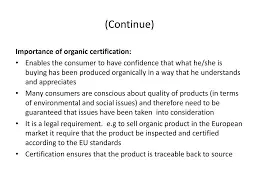
2. Market access:
Organic certification can help farmers and processors to access new markets and customers, as many consumers are willing to pay a premium for organic products.This can help to increase the income of farmers and processors and promote sustainable farming practices.
3. Environmental protection:
Organic certification helps to protect the environment by reducing the use of synthetic pesticides and fertilizers, which can have negative impacts on the health of the soil and the surrounding ecosystem.It promotes the use of natural methods of farming which is more sustainable and eco-friendly.
4. Quality assurance:
Organic certification ensures that organic products are of the highest quality and have been produced and processed in accordance with strict standards.This can help to build consumer trust in organic products and can increase consumer demand for them.
5. Compliance with laws and regulations:
Organic certification ensures that farmers and processors are in compliance with laws and regulations regarding organic production and processing.This helps to prevent fraud and protect consumers from potentially harmful products.
In summary, organic certification is an important process that guarantees the authenticity of organic products, promotes sustainable farming practices, and protects the environment.
It also provides assurance to consumers that the products they are buying are truly organic and of the highest quality.
Organic Certification in Nepal: Opportunities and Challenges
Organic certification in Nepal presents both opportunities as well as challenges for farmers, processors, and traders of organic products.
Organic certification can help to increase the income of farmers and processors by allowing them to sell their products at a higher price.
Opportunities for Organic Certification In Nepal (OCN)
- Increased market access:Organic certification can help farmers and processors to access new markets and customers, as many consumers are willing to pay a premium for organic products. This can help to increase the income of farmers and processors and promote sustainable farming practices.
- Job creation:Organic certification can also create jobs in Nepal by increasing the demand for organic products. This can provide employment opportunities for people involved in organic farming, processing, and marketing.
- Environmental protection:Organic certification helps to protect the environment by reducing the use of synthetic pesticides and fertilizers, which can have negative impacts on the health of the soil and the surrounding ecosystem. It promotes the use of natural methods of farming which is more sustainable and eco-friendly.
- Better health:Organic products are free from harmful chemicals and pesticides which provide better health benefits to the consumers.
5.Promotion of sustainable farming practices:Organic certification can help to promote sustainable farming practices in Nepal by reducing the use of synthetic pesticides and fertilizers, which can have negative impacts on the health of the soil and the surrounding ecosystem.
Challenges for Organic Certification in Nepal (OCN)
- High cost:Organic certification can be a costly process, especially for small farmers and processors. This can be a barrier to entry for these groups and may limit the growth of organic sector in Nepal.
- Limited awareness:Many farmers and processors in Nepal may not be aware of the benefits of organic certificate or may not understand the process. This can be a barrier to entry for these groups and may limit the growth of the organic sector in Nepal.
- Lack of infrastructure:Nepal is still developing when it comes to organic certification infrastructure, this can cause difficulties for farmers and processors trying to get their products certified.
- Lack of support from Government:The government of Nepal does not provide enough support to the organic farming sector, which can make it difficult for farmers and processors to access the resources and support they need to be successful.
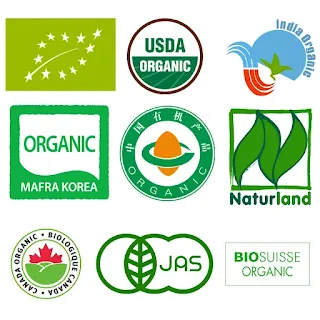
Therefore, organic certification in Nepal is an important process that guarantees the authenticity of organic products, promotes sustainable farming practices, and protects the environment.
However, it also comes with its own set of opportunities and challenges.
The government and private sector must work together to address these challenges and create a supportive environment for the growth of the organic sector in Nepal.
How Does Organic Certification Nepal Help with Organic Certification?
Organic Certification Nepal Pvt. Ltd. is a leading certification body in Nepal that provides organic certification services to farmers, processors, and manufacturers. Here are a few ways that Organic Certification Nepal can help with organic certification:
- Consulting: Organic Certification Nepal provides consulting services to farmers, processors, and manufacturers to help them understand the organic certification process and requirements. This can include guidance on organic production and processing methods, record-keeping, and compliance with laws and regulations.
- Auditing and certification: Organic Certification Nepal conducts audits of farmers, processors, and manufacturers to ensure that they are in compliance with organic certification standards. If they meet the requirements, Organic Certification Nepal will certify them as organic.
- Inspection and surveillance: Organic Certification Nepal conducts regular inspections and surveillance of certified farmers, processors, and manufacturers to ensure that they continue to meet organic certification standards.

How much does it cost to certify a product organic?
The cost of certifying a product as organic varies depending on the certifying agency, the size of the operation, and the type of product being certified. On average, it can cost anywhere from a few hundred dollars to several thousand dollars for an annual certification.
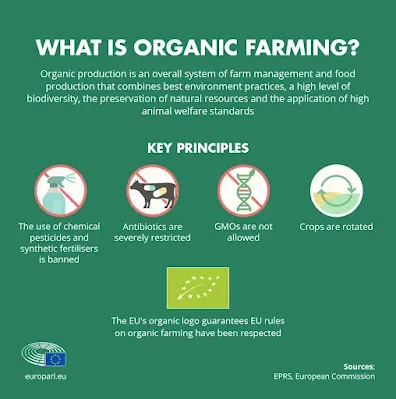
Additionally, there will be additional costs for inspections and testing. It's best to contact certifying agency Organic Certification Nepal Pvt. Ltd. 9840525565 directly for specific pricing information.
What is 100% organic certified?
100% organic certified refers to products that have been certified by an accredited agency as meeting strict standards for organic production and processing.
These standards are set by third party internationally accredited bodies like USDA's National Organic Program (NOP), ProCert UK and include guidelines for growing, harvesting, and processing organic products.
To be labeled as 100% organic, a product must contain only organically produced ingredients. This means that no synthetic fertilizers, pesticides, or genetically modified organisms (GMOs) can be used during the production process.
Additionally, the product must not contain any artificial preservatives, flavors, or colors.
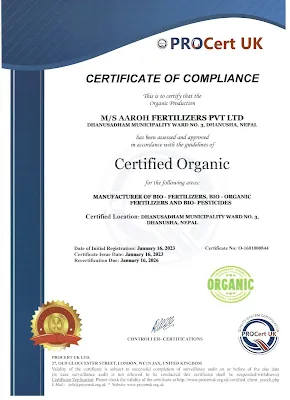
Products that contain at least 95% organic ingredients may be labeled as "organic," and products that contain between 70-95% organic ingredients may be labeled as "made with organic ingredients.
Products that are 100% organic certified are also subject to regular inspections by the certifying agency Organic Certification Nepal Pvt. Ltd. to ensure that they are meeting the standards for organic production.
What is organic certification process?
The organic certification process is a system that verifies that a product has been produced using organic methods and meets the standards set forth by the certifying agency. The process typically involves the following steps:

Application:
The producer or grower applies for certification with the certifying agency, such as Organic Certification Nepal Pvt. Ltd.
Inspection:
The certifying agency conducts an on-site inspection to verify that the farm or operation is in compliance with the organic standards.
Review:
The certifying agency reviews the inspection report and the producer's application to determine if the farm or operation meets the standards for organic production.
Certification:
If the farm or operation meets the standards, the certifying agency will issue a certificate of organic production.
Annual inspections:
The certifying agency will conduct annual inspections to ensure that the farm or operation is continuing to meet the organic standards.
Renewal:
The certification must be renewed annually by the certifying agency and the farm or operation must continue to meet the standards for organic production.
It's important to note that the process for obtaining organic certification can vary depending on the specific certifying body and the place you are located in. In some cases, it could take several months to complete the certification process, so it's always recommended to Contact Organic Certification body Organic Certification Nepal Pvt. Ltd. 9840525565 for specific guidelines and time frame.
What is organic certification?
Conclusion
In conclusion, organic certification in Nepal is an important process that guarantees the authenticity of organic products, promotes sustainable farming practices, and protects the environment.
Organic Certification Nepal plays a vital role in this process by providing consulting, auditing, and certification services, as well as ongoing support for inspection, surveillance, and documentation.
They also provide technical support to farmers, processors, and manufacturers to help them improve their organic production and processing methods.
With the help of organizations like Organic Certification Nepal, farmers, processors and manufacturers can access new markets and customers, create jobs, protect the environment and provide healthy and safe food to the consumers.
It is important for farmers, processors and manufacturers to be aware of the benefits of organic certificate and to understand the process in order to take advantage of the opportunities it offers.
The government and private sector must work together to address the challenges and create a supportive environment for the growth of the organic sector in Nepal.
Frequently Asked Questions
- What
is organic farming? Organic farming is an agricultural approach that
relies on natural and eco-friendly practices. It avoids the use of
synthetic chemicals, genetically modified organisms (GMOs), and artificial
additives. Instead, organic farmers prioritize techniques such as
composting, crop rotation, and biological pest control to promote soil
health and sustainability.
- Is
hydroponic farming organic? Hydroponic farming, which involves growing
plants without soil in nutrient-rich water solutions, can be organic if it
adheres to organic principles. However, for hydroponic farming to be
certified organic, it must use organic nutrients and avoid synthetic
substances.
- Is
organic farming sustainable? Yes, organic farming is considered a
sustainable agricultural practice. By avoiding harmful chemicals and
promoting natural processes, it helps maintain soil fertility, conserve
water, and protect biodiversity, contributing to a healthier environment
for future generations.
- How
long does it take to convert to organic farming? The time to convert
to organic farming can vary depending on factors like the farm's size,
current practices, and soil condition. The organic certification process
usually takes a minimum of three years, during which the land must be
managed using organic practices without the use of prohibited substances.
- How
does organic farming help maintain soil health? Organic farming
practices, such as composting and crop rotation, enhance soil structure
and promote the presence of beneficial microorganisms. These practices
increase organic matter content, water retention, and nutrient
availability, resulting in healthier and more fertile soil.
- How
to make a financial plan for an organic farm? Creating a financial
plan for an organic farm involves assessing costs, potential revenue
streams, and operational expenses. It is essential to consider investments
in organic inputs, certification costs, marketing strategies, and expected
yields to develop a comprehensive financial plan.
- Is
it possible to do organic farming without animal manure? Yes, it is
possible to practice organic farming without using animal manure. Organic
farmers can employ alternatives such as compost from plant materials,
green manure, and other natural fertilizers to provide nutrients to the
soil.
- Has
Karnali province been declared as organic farming? As of my last
knowledge update in September 2021, there were initiatives to promote
organic farming in Nepal, including Karnali province. However, specific
declarations may vary, and it's best to check the latest updates from
relevant authorities.
- What
are the possibilities of organic farming in Nepal? Nepal has great
potential for organic farming due to its diverse agro-climatic conditions
and abundant natural resources. Organic farming can help improve soil
health, preserve biodiversity, and provide sustainable livelihoods to
farmers.
- What
can be used in organic farming? Organic farming relies on natural
inputs like compost, green manure, organic fertilizers, biopesticides, and
biological pest control methods. It avoids synthetic chemicals,
genetically modified organisms, and sewage sludge.
- What
things are not used in organic vegetable farming? In organic vegetable
farming, synthetic pesticides, herbicides, chemical fertilizers, and GMO
seeds are not used. Additionally, the application of sewage sludge and
irradiation is prohibited.
- Why
is organic farming important for soil biodiversity? Organic farming
practices promote diverse plant growth and encourage the presence of
beneficial microorganisms in the soil. This, in turn, fosters a healthy
soil ecosystem, which enhances soil biodiversity and overall ecosystem
resilience.
- Can
organic agriculture in Nepal feed the growing population? Yes, organic
agriculture in Nepal has the potential to contribute significantly to
feeding the growing population sustainably. By adopting organic practices,
increasing productivity through agroecological methods, and reducing
post-harvest losses, organic farming can play a crucial role in food
security.
- What
is organic fertilizer? Organic fertilizer is derived from natural
sources, such as animal manure, compost, plant residues, and other organic
materials. It provides essential nutrients to plants and improves soil
fertility without harmful effects on the environment.
- What
is animal organic fertilizer? Animal organic fertilizer, also known as
animal manure, is derived from the waste of animals like cows, chickens,
or horses. It is a valuable source of nutrients and organic matter used to
enrich the soil in organic farming.
- Is
urea an organic fertilizer? No, urea is not considered an organic
fertilizer. Urea is a synthetic nitrogen fertilizer made from fossil
fuel-based resources. Organic farming avoids the use of synthetic
chemicals like urea.
- Why
are organic fertilizers better? Organic fertilizers release nutrients
slowly, improve soil structure, and support microbial activity,
contributing to long-term soil health. They are environmentally friendly,
sustainable, and do not pose risks of chemical buildup or groundwater
contamination.
- Why
is organic fertilizer better than chemical fertilizer? Organic
fertilizers are better than chemical fertilizers because they do not harm
beneficial soil organisms, promote long-term soil fertility, and reduce
the risk of chemical residue in crops and the environment.
- Why
is organic fertilizer better than inorganic? Organic fertilizers
enhance soil health by increasing organic matter content and supporting
natural nutrient cycling. Inorganic fertilizers, on the other hand, may
provide quick nutrient fixes but can lead to soil degradation and
environmental issues over time.
- How
is organic fertilizer prepared? Organic fertilizers can be prepared by
composting organic matter such as food scraps, crop residues, and animal
manure. The decomposition process converts these materials into
nutrient-rich compost suitable for fertilizing crops.
- How
to make organic dap fertilizer? Diammonium phosphate (DAP) is not an
organic fertilizer; it is a synthetic fertilizer containing nitrogen and
phosphorus. Organic alternatives for phosphorus fertilization include rock
phosphate or bone meal.
- Is
NPK fertilizer organic? NPK fertilizer refers to synthetic fertilizers
containing a balanced blend of nitrogen, phosphorus, and potassium. NPK
fertilizers are not organic, as they are chemically manufactured.
- What
are the similarities between organic and inorganic fertilizers? Both
organic and inorganic fertilizers aim to provide essential nutrients to
plants for healthy growth and increased yields. However, the key
difference lies in their source and their impact on soil health and the
environment.
- What
are the types of organic fertilizers? Organic fertilizers include
compost, animal manure, green manure, bone meal, fish emulsion, and
various organic-based blends designed to enrich the soil naturally.
- What
is green organic fertilizer? Green organic fertilizer refers to
fertilizers derived from plant materials, such as leaves, grass clippings,
or crop residues. It is a valuable source of nutrients and organic matter
for soil enrichment.
- What
are the two good qualities of organic fertilizer? Two good qualities
of organic fertilizers are their ability to improve soil structure and
fertility while promoting long-term sustainability and environmental
friendliness.
- What
is compost and organic fertilizer? Compost is a type of organic
fertilizer created through the decomposition of organic matter. It is rich
in nutrients and beneficial microorganisms, making it an excellent soil
conditioner and nutrient source for plants.
We are the leading ISO System Certification body in Nepal. We will help an organization to understand requirements, implement the standard and ensure that your company is in compliance with any ISO Certification in Nepal. Besides to ISO 9001 quality management system, we also provide ISO 14001( Environmental management System certification) , ISO 22000(Food Safety Management System Certification) ISO 45001 Occupational health and safety management system , ISO 27001 Information Security Management System . ISO/IEC 17025 Testing and calibration laboratories Organic Certification in Nepal. If you have any queries as well as if you want to get your organization to be ISO Certified, please call 9840525565 to get free consultation on ISO Certification service and know which ISO standards is best for your organization.


